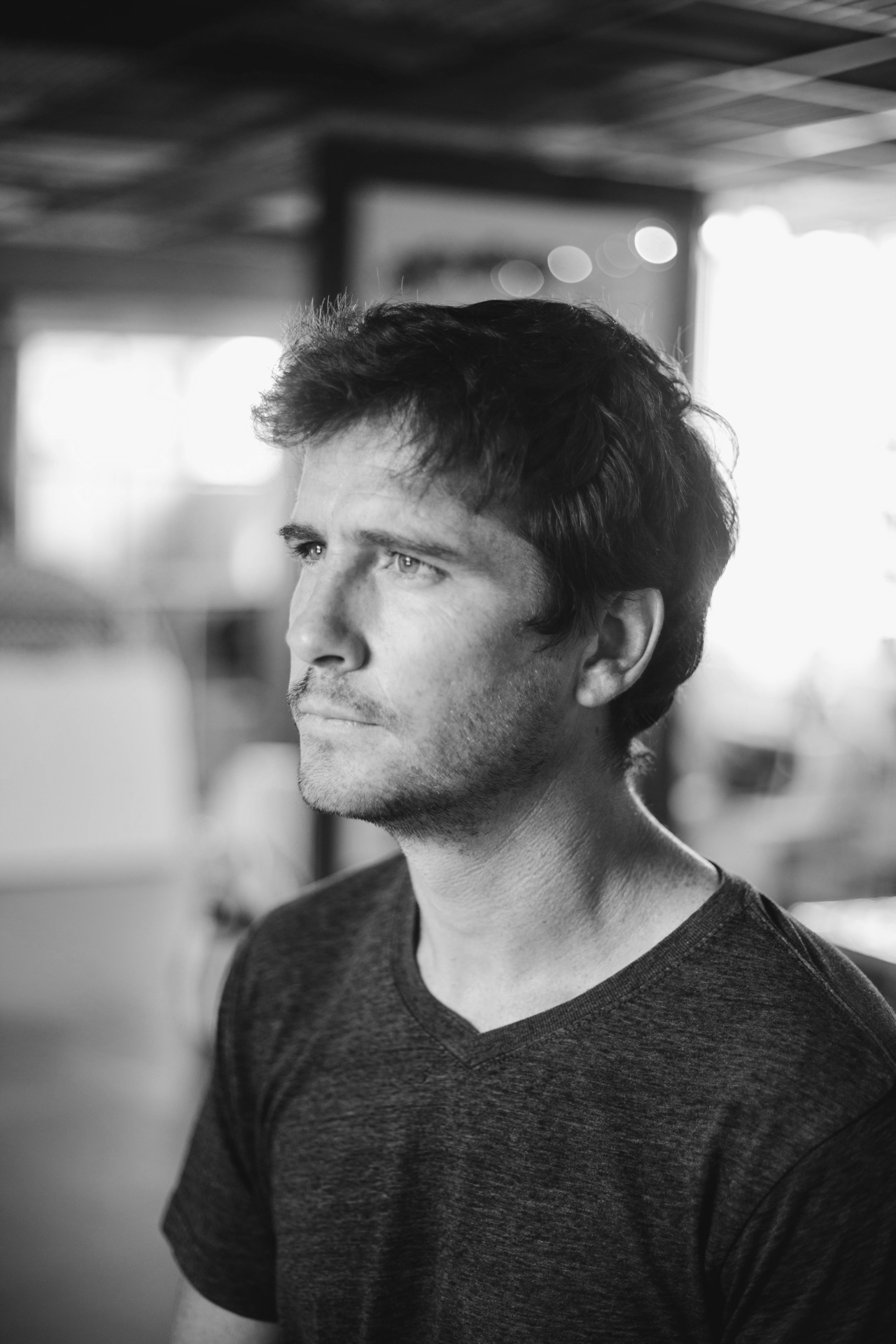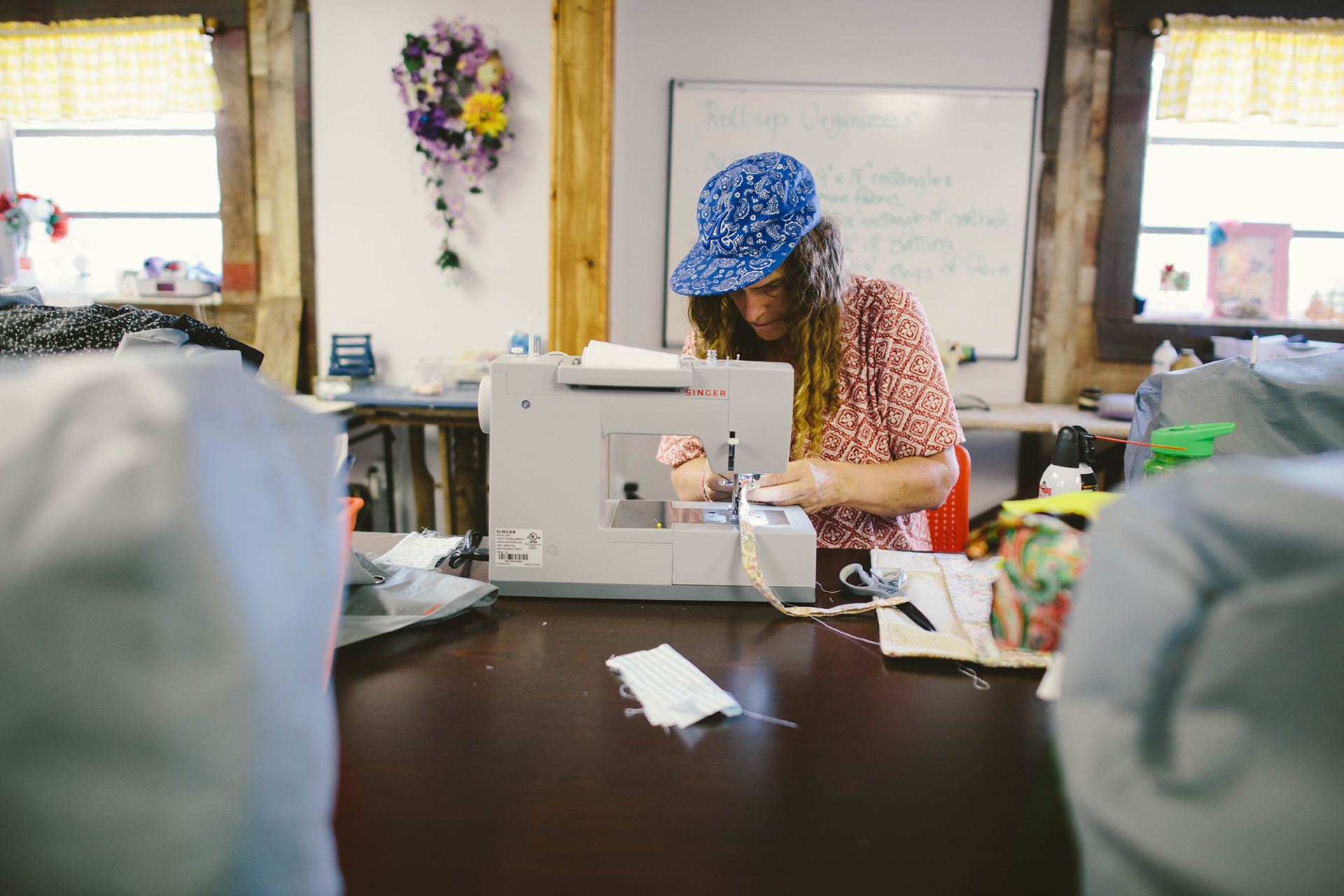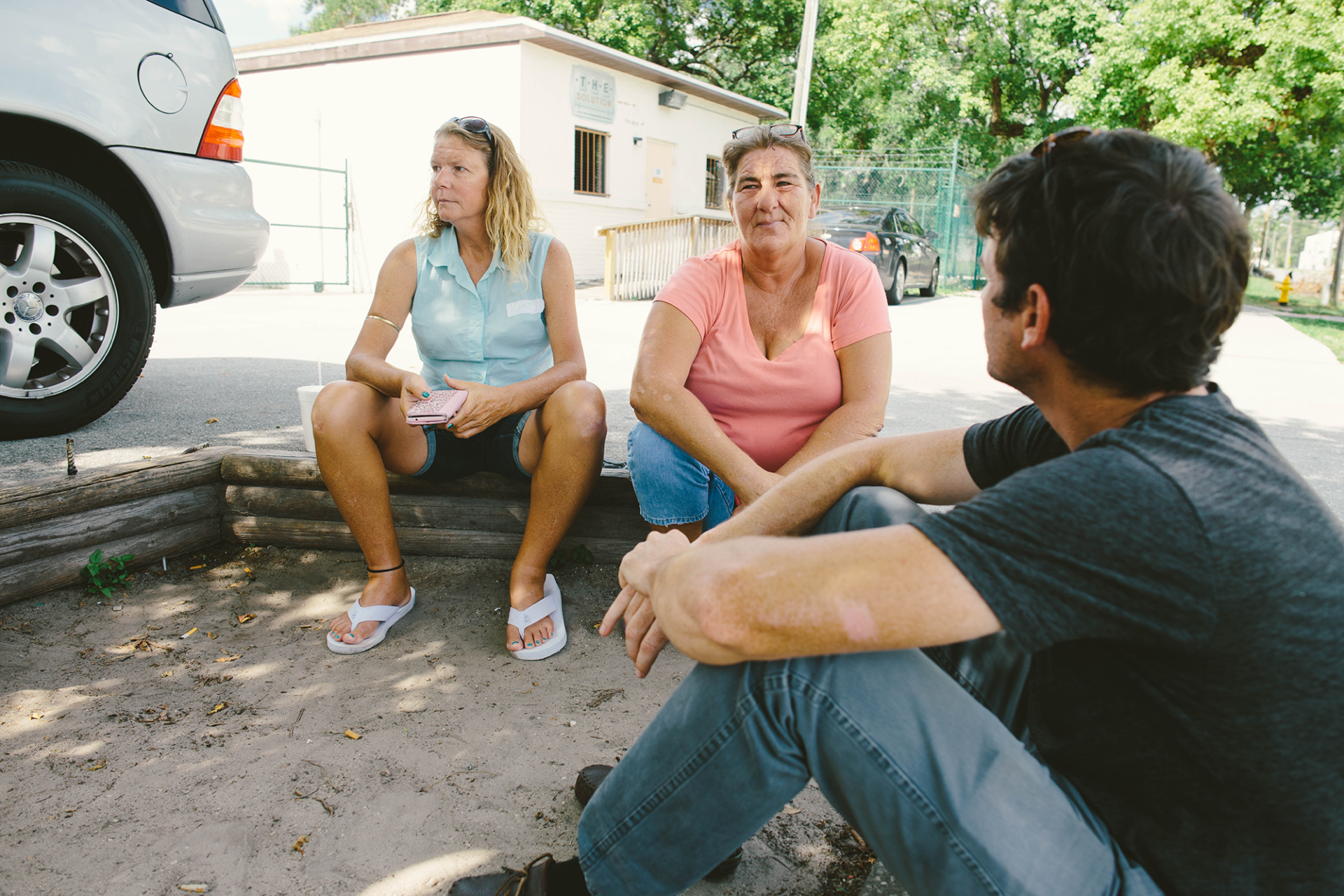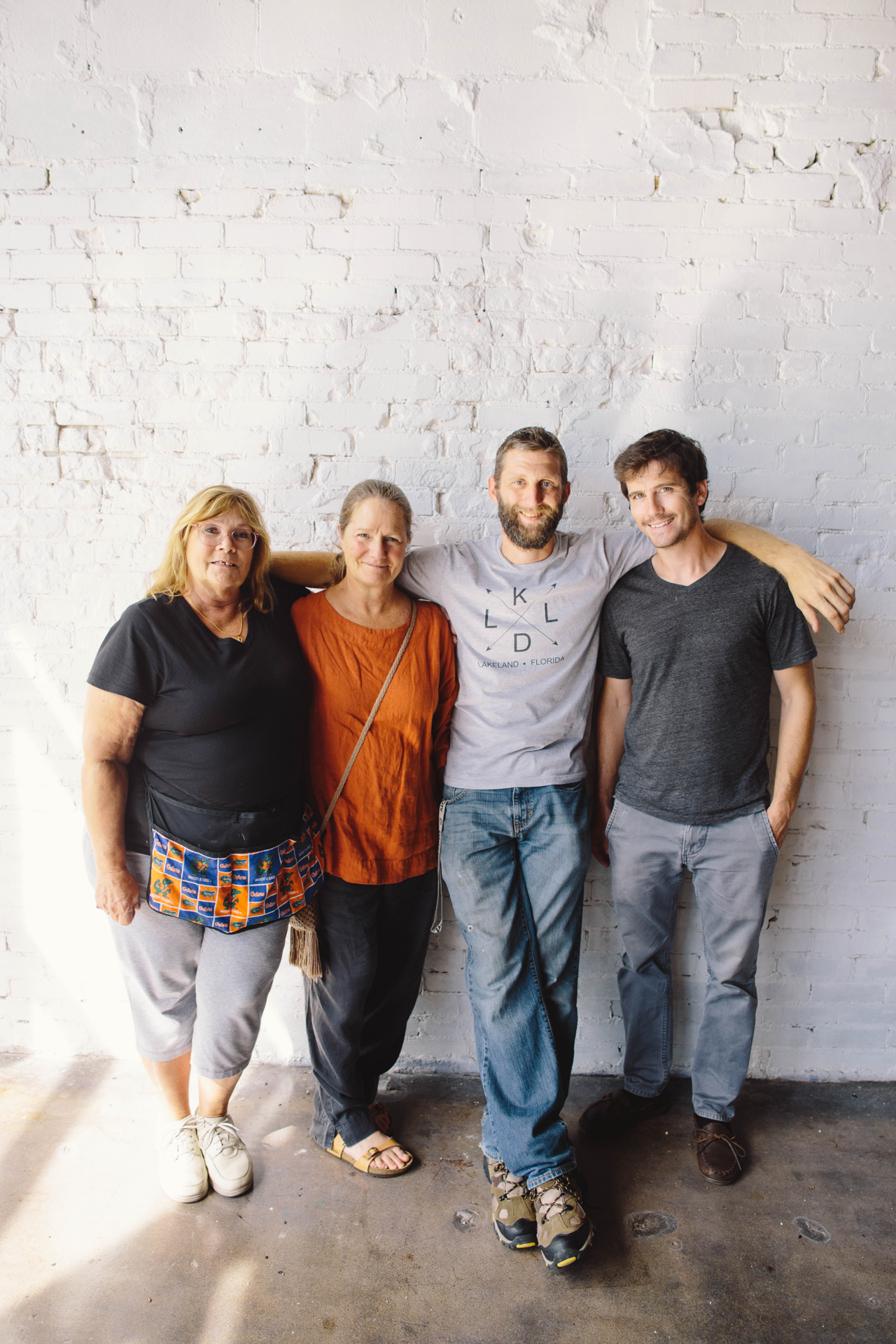Though the number of homeless appears to be rising in our city and in our nation, there are several individuals and organizations who are making a lasting change. It’s not a change that comes overnight but by tending to needs day by day, meal by meal. It comes from not simply seeing a need and fixing it, but walking with and among those in need.
Photography by John Kazaklis
A crisis the U.S. has certainly yet to overcome, according to recent reports over 560,000 Americans are currently homeless. While we no doubt see the reality of these statistics in our very streets, Gospel Inc. is an organization working to meet the needs of the homeless of Lakeland. And, at the very least, meet them where they are at.
The Lakelander: Tell us about yourself and how you came to found Gospel Inc.
Brian Seeley: I grew up in a Christian home on Long Island. But I was a rebellious kid. I rebelled against my parents, against God, and even got kicked out of school a couple times. I returned home in my late teens to work in my dad’s business. I was doing a lot of soul-searching when a friend invited me to go with him to a Youth With A Mission (YWAM) discipleship training school in New Zealand. It appealed to me because I felt like I was seeking God. So at 19, I went to New Zealand, and that’s really where I encountered Christ. My life was turned upside down, and I started down a different path, whereas until that time I was just living for myself. Jesus really changed my heart and revealed my sin to me and how needful of a savior I was.
The way Jesus embraced the poor and marginalized really struck a chord in my heart. He really made it a point to walk among them. So I started spending time with homeless folks. I lived on the streets of New Zealand with the homeless, hitchhiking around with them. I just felt compelled to be among them. I didn’t tell them I wasn’t homeless — I just did what they were doing. From the very beginning of my faith, that’s how I approached homeless people — personally, one-on-one, showing solidarity, and trying to really enter their world. Of course, I could never experience true homelessness because I don’t have to be homeless. So, even though I can’t know what it’s really like, I can still be part of their world, to care for them.

And that journey led me to Southeastern University here in Lakeland where I decided to pursue ministry. I had an option to go back home and work in my dad’s business. It would have been a great life — a profitable one — but I felt compelled to do ministry and pursue this dream of working with the homeless. I started spending time with the homeless people in Lakeland on a daily basis, just walking the streets and getting to know them. It’s cool to see people finally enter recovery or transition programs today that I first met when they were homeless back in 2008.
The heartbeat of Gospel Inc. is to walk among the homeless. That’s why we live in the Parker Street neighborhood — so we can be available to the homeless community. It means people can walk up to our door and we can be there for them. For instance, there’s a young guy who I’ve known for five or six years. We’ve helped him into a dozen programs, but he’s relapsed each time. About a month ago, he knocked on my door again, and he was just really worn out. I was able to help him. He’s finishing up treatment now and will be entering into a sober home. This was possible because we live in the community, and he knows that I’m there for him. He would probably say I’m his best friend, maybe just his only friend, because he’s burned so many bridges over the years that he doesn’t have anyone else. He doesn’t have anything, really, no phone, no home. But he knows he can come to my house, and all I can really offer is another chance.

Many of the homeless have tried many times not to be homeless, but for whatever reason, they get tired of trying. Just like this man I mentioned, they exhaust themselves trying until it’s clear to them they will either die on the streets or try one more time. Gospel Inc. is really there for those folks, to encourage them, and to say, “Hey let’s try again.”
Kari Seeley [Brian’s wife]: I am from Tanzania; my parents are missionaries there. My older brother attended Southeastern University and was Brian’s roommate. My brother would always come back and tell me these crazy stories of hanging out with the homeless people of Lakeland. So when I came to Lakeland to attend Southeastern, I knew that I wanted to be a part of the ministry to the homeless. Even though I was leaving the mission field in Tanzania, I didn’t want to stay in a bubble. I wanted to be a greater part of the community. I didn’t want to be stagnant water. I didn’t want to simply attend Southeastern and have all this good stuff flowing in and make no contribution of my own to the community or to God’s mission. Since my brother was part of this ministry, I thought it was a perfect opportunity, so I started coming to the Friday night Outreach, and I haven’t stopped! [laughs]
TL: What does the ministry offer the homeless and marginalized members of our community?
Brian: The outreach that we began in 2008 continues every Friday night. We walk the streets of our neighborhood to minister to the homeless community and build friendships that we hope will continue.
Through our outreach efforts, we saw a need for a home that could help men in recovery take the next step toward stability. We established a Men’s Home for that purpose, and the men that live there have a place to stay and offer each other accountability. Repurpose Art Studio has evolved into a place where women can learn new skills, build relationships, and create.
The Men’s Home is a place where we can offer discipleship and support to men as they are walking in recovery. Most are recovering alcoholics or addicts whose substance abuse really prevented them from living a functional life. They need to be in a community where they’re held accountable. So we hold them accountable, and we have Bible studies. Nearby churches — like Grace City and Access — help by leading Bible studies, too. The goal is for church members to network and provide resources and relationships to the men. Of course, the men are required to go to other meetings like AA and NA throughout the week and encouraged to attend any other church or support groups to help them in their recovery. They all have jobs, leaving for work during the day and returning to the Men’s Home at night. So it’s not a program per se; we’re just there to support them, and it’s a place to support their transition. Lighthouse Ministries will refer men to us who are well on their way to recovery. Ideally, we want to work with men who’ve been through a program and need a transitional home to reenter the workforce and real world.

TL: How are the homeless just like the readers of this article who are likely in society’s mainstream?
Brian: At first, you’ll find the socio-economic gap between you and a homeless person to be huge, but you’re much more similar than you might realize. Over time, as you walk with people and build relationships with them, those differences become less and less important.
But, ironically, we can often relate as much to a homeless person who is suffering profound dysfunction as one who has just had a string of unfavorable circumstances. Their extreme dysfunctions are in me, too, although maybe not so fully developed or severe. Being able to relate on that level is part of the reason I’m comfortable engaging them through that process. I realize I’m not really any different from them.
When I, or we, recognize that I’m human and have my own problems and my own sin, I don’t get to feel superior to them. When we build real, genuine relationships with the homeless, I feel that our outreach has been successful.
TL: Tell us about some of Gospel Inc.’s success stories. And given that Jesus said that the poor would always be among us, how do you deal with discouragement?
Connie Lutter of Repurpose Art Studio: One of our women already has a full-time job at a daycare. If it wasn’t for her time at Repurpose, I don’t think she would have had the confidence to even go look for a job. It gave her the skills to achieve.
Brian: Well, one particular man has been with us a little over a year. During that time, he earned his GED from West Area Adult School and a full scholarship from Travis Tech. Now he’s learning to be an electrician while working full-time. He’s even transitioned out of the Men’s Home into his own place which the ministry owns in the neighborhood.
For him, there are no more rules like at the Men’s Home. He’s on his own, he pays his rent, but we are still in his life and we’re still there for him. He’s successfully making the transition in a stable home and continuing his education. He’s an example of somebody who really did a good job.
But that doesn’t always happen. Most people in recovery will have a relapse, so that’s part of the challenge of working with them. But we walk with them through that process, too. A man who relapses can’t continue in our Men’s Home since it can spiral out of control and adversely affect other people. But we don’t abandon someone who’s relapsing, either.
People have asked me how we can continue to work with someone who just keeps going back to the streets. I do the same thing — maybe just not in the same way. I often disappoint myself or my wife. So to cut off the homeless person because they did it again would be to assume that I’m superior to him and would deceive myself.
I always like to remember this quote from Fyodor Dostoyevski who wrote in the The Brothers Karamazov: “Every one is really responsible to all men, for all men, and for everything.”
I think it’s important that when thinking about homelessness that we don’t ignore what might be our own contribution to it — or our own responsibility for ameliorating it.
Kari: Our society is very much focused on our vocation as our identities. A beautiful thing about relating to the homeless is that it can’t be your profession that defines you. It’s, “What kind of friend are you to me?” or “Are you there to help when so-and-so beat somebody else up?” and “Are you there for me when I start crying?” Relating to the homeless becomes more about identity — who I am, what kind of friend am I, rather than what I do. Working with the homeless can remind you of what’s beautiful and really important.
TL: Besides your tireless work in the ministry, you also run a business during the holiday season to support it. Tell us about it.
Brian: I established Looks Great Enterprises, which originally provided lawn care and other labor. But a friend in New York had a holiday lighting business and convinced me to start the service here. So for the last few years, we’ve been decorating homes around Lakeland, which provides work for the guys, as well as me, with an income, because I don’t draw a salary from Gospel Inc.
In addition, I also support myself by doing property management for the CRA, which I’m open to do for others. I manage the Neighbors of Lakeland apartment complex, and I also work part time for Tri-County Human Services doing outreach to the homeless. Tri-County has been a big blessing. It has funding and resources that I can use to help people that I meet on Lakeland’s streets. So I earn an income from the businesses I’ve started, and that gives me the freedom to run Gospel Inc.

TL: On a weekly basis, you perform outreach to the homeless that is at once simple yet bolder than most people imagine they could participate in. How would you encourage someone that’s apprehensive to join you in the outreach?
Brian: Those of us at Gospel Inc. are constantly doing outreach, and Friday nights are great opportunities to invite other people to join us in doing that.
A typical Friday looks like this: we walk around the neighborhood and simply stop to talk with homeless people. It usually leads to some discussion about what their needs are, how we can assist them, and praying for them. The goal is to connect two people together — a homeless person and someone who would typically never engage a homeless person — to develop a friendship beyond that Friday night. I’m really trying to draw people into being in a community that builds long-lasting relationships with the homeless. We try to move beyond to a place where we might hang out during the week with them. For instance, this past Friday we took a couple people out to Tapatio’s. We build normal relationships with them like you would with anyone else. They just happen to be homeless.
I’d be remiss if I didn’t mention how much I appreciate the CRA’s support. It leased me the apartment complex with the goal of inviting people to live there who’d invest in the neighborhood. It’s been cool for someone like me who doesn’t have a lot in terms of capital to get the opportunity to run Neighbors of Lakeland.
